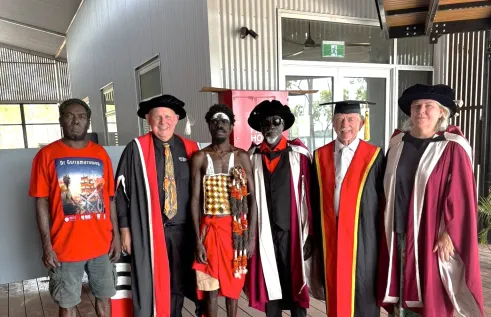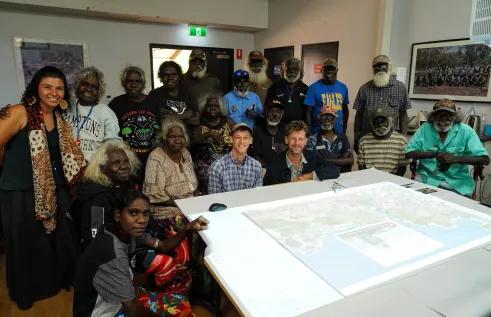Twitter users feeling hot, hot, hot during heat waves according to study
A first of its kind study into global Twitter activity during heatwaves has revealed why social media should be leveraged to spread information about extreme temperatures.
The Charles Darwin University (CDU) study, in collaboration with Pardeborn University in Germany, explored how social media and in particular Twitter, can be used to understand how people feel about heat waves and how they respond.
It examined 62,920 tweets made between January and April of 2022, when there were above-average temperatures in Asia, South America, the Atlantic and Pacific Oceans and Australia. The tweets were searched based on a series of keywords including ‘heat wave’, ‘heat warning’ and ‘heatstroke’.
The study, one of the few to investigate social media use during extreme heat, found 66 per cent of tweets discussed climate-related extreme heat and heat waves. Topics of discussion included health impacts at 20 per cent and extreme weather and climate change at 17 per cent.
CDU Associate Professor and lead author Kerstin Zander, from the Northern Institute, said the research affirmed the importance of using social media to share vital information about extreme heat.
“Our analysis suggests that many Twitter users are aware of heat or heat waves and that social media can help to disseminate information about extreme temperatures and weather updates,” Associate Professor Zander said.
“Many users employ Twitter to share how they feel about unbearable heat and Twitter communications were also used, albeit to a lesser extent, to talk about how to cope with and get relief from heat stress.
“We also identified the circumstances under which tweets are likely to be retweeted, including the role of timeliness and social networks, which can help when organisations need to disseminate information in an emergency,” Andy Nguyen, data scientist and co-author said.
Associate Professor Zander said the study showed users trusted Twitter accounts managed by scientists, science organisations and media corporations for credible climate information.
“We detected little fake news or account activities by users who disseminate false information about climate change and related heat, as can sometimes happen on social media,” she said.
“The most prolific accounts belonged to individual scientists or scientific organisations. This suggests that people rely strongly on scientific information and traditional news channels during extreme weather events and that these channels are not having to compete with misinformation.”
The data showed government emergency services did not feature highly among heat wave-related tweets.
The study, Responses to heat waves: what can Twitter data tell us? was published in journal Natural Hazards.
Read the full study here.
Related Articles

First Yolŋu awarded a PhD through CDU
In an Australian first during a special conferral celebration that took place in remote East Arnhem land at Yalakun outstation last week, a late Yolŋu leader from East Arnhem received a Posthumous PhD.
Read more about First Yolŋu awarded a PhD through CDU
3D printed map brings Elders’ knowledge to life
Multimedia and 3D technology are the latest tools being used by Elders in Maningrida to share their traditional knowledge and ancient stories, facilitated by a collaboration between Charles Darwin University academics.
Read more about 3D printed map brings Elders’ knowledge to life
Research reveals how Australians really feel about the world's largest proposed solar farm
Australians are substantially supportive of renewable megaprojects, but their approval begins to wane if the produced energy doesn’t benefit them, according to a new study examining social acceptance of the proposed world’s largest solar plant.
Read more about Research reveals how Australians really feel about the world's largest proposed solar farm
